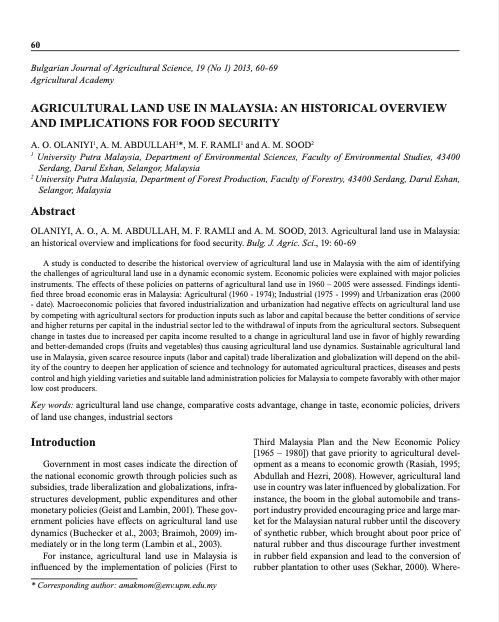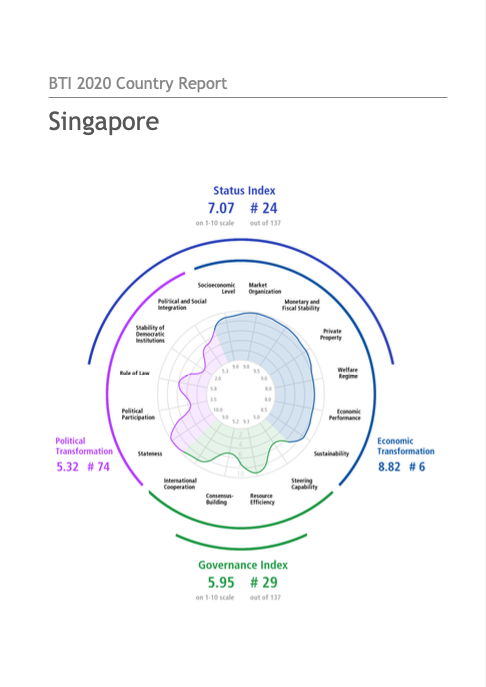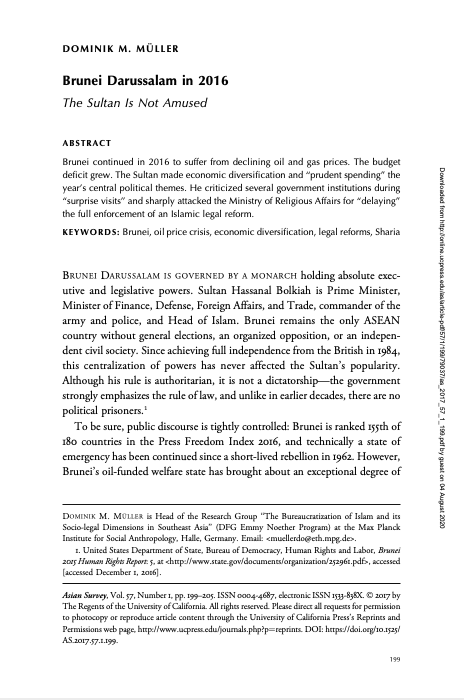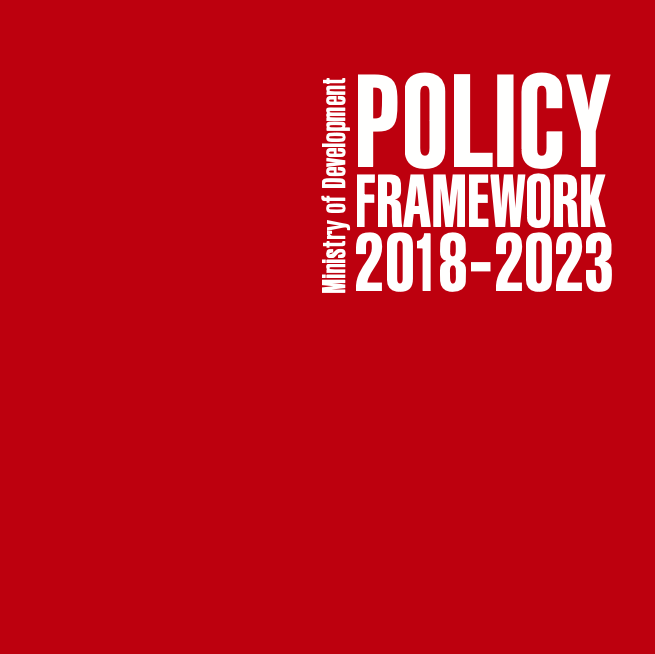Agricultural Land Use in Malaysia: An Historical Overview and Implications for Food Security
A study is conducted to describe the historical overview of agricultural land use in Malaysia with the aim of identifying the challenges of agricultural land use in a dynamic economic system. Economic policies were explained with major policies instruments. The effects of these policies on patterns of agricultural land use in 1960–2005 were assessed. Findings identified three broad economic eras in Malaysia: Agricultural (1960-1974); Industrial (1975-1999) and Urbanization eras (2000-date).












